Jun 07, 2022
STRESS AND HOW IT AFFECTS YOUR SEX DRIVE
If you’ve ever found your libido levels going from a 10 to an ‘ugh, not tonight’, then stress might be to blame. Being distracted by impending to-do lists, going through high-pressure situations or simply feeling overwhelmed by your mental load can boost the production of our stress hormones. In fact, prolonged or even short-term stress can do some pretty wild things to our bodies — and our sex drive.
Certified sex coach Georgia Grace is here to unpack the link between stress and sex. Below, she weighs in on some important questions about sexual desire and offers her expert advice to help us leave stress at the (bedroom) door.
On the meaning of sex drive
To begin with, ‘sex drive’ is not the best term to describe what we want to talk about. Desire is more fitting. When we call something a drive, we often think of a drive to survive - a drive to drink water, a drive to breathe. If you don't have sex, you're not going to die, although it might certainly feel like that for some people! Desire is a more accurate way to explain what’s going on, and it can be useful to see desire as motivation, an urge, or a wanting for sex.
On the impact of stress on sexual desire
The last few years, in particular, have highlighted the diverse impact stress can have on desire. For some people, sex, pleasure or masturbation is a form of stress relief. For others, stress can negatively impact their desire, and they may find themselves desiring sex less than they would like.
Elevated levels of cortisol, the stress hormone, do reduce our desire for sex. When we have too much on our minds or when we feel overwhelmed by our mental load, it’s not always easy to prioritise sex. It’s also important to consider the physiological effects of stress. When people are stressed, they may feel it in their chest or their stomach, or they may feel dizzy or disoriented. Chronic stress, as research indicates, can have serious impacts on your overall health and wellbeing. Looking at stress management practices with clients, it’s clear that people aren’t making the connection between stress and sex often enough.
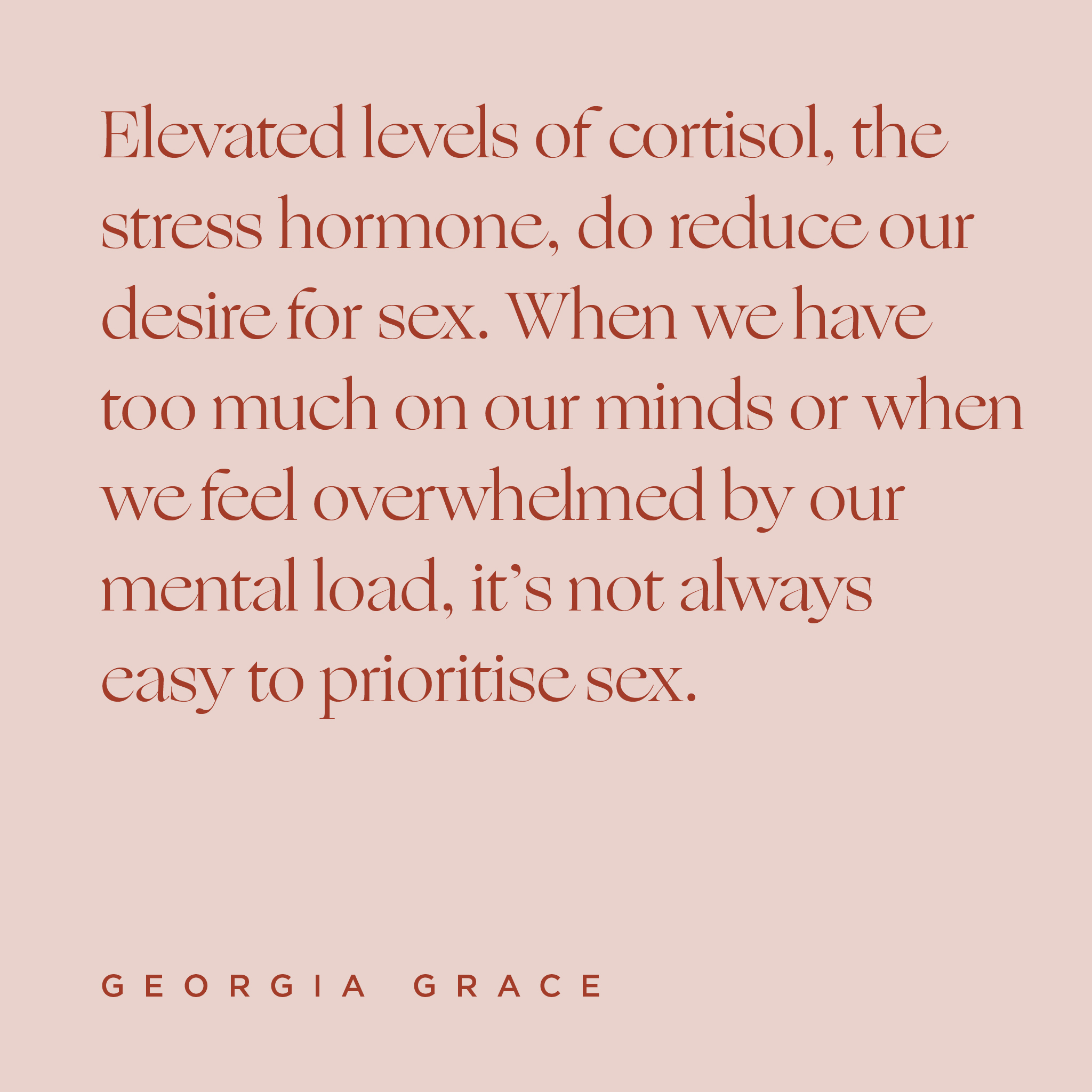
On stress and desire in our relationships with ourselves and others
The influence of stress on desire differs across relationships, and it may be more helpful to look at the individual. By exploring our sexual excitation system (our turn-ons), and our sexual inhibition system, (our turn-offs), it’s possible to get a sense of how our brains and bodies function. Often, stress or high workloads are a turn-off for many people. Once we understand our turn-offs, it is easier to see what we can remove or manage so desire can thrive!
Importantly, we do know that mental load typically affects cis women in relationships more so than it affects cis men, so these women may find their sexual desire is more impacted. Any time a person is having to do more work or think about what they may need to do for friends and family means less time for them to prioritise their own pleasure. In relationships, sex itself can also be the cause of stress. We may question whether we are having sex enough, or we may feel anxiety about our sexual performance. For example, coming too quickly, not coming at all, or feeling stressed about how our body looks and behaves.
On understanding our sexual brakes and accelerators
When we’re talking about sex, our ‘brakes’ refer to our sexual inhibition system and ‘accelerators’ to our sexual excitation system. Our bodies are constantly scanning our environment for thoughts, feelings or experiences that are sexually relevant and arouse our excitement. This might be going on holiday, feeling sexy as we watch our partner in their element, or doing something romantic.
In contrast, our sexual inhibition system scans our environment for those feelings and experiences that tell us to put the brakes on sexual intimacy. This could be stress, feeling overwhelmed by chores, or not feeling comfortable in our bodies. Our aim is to identify these ‘brakes’ so that we can either remove them or work with them.
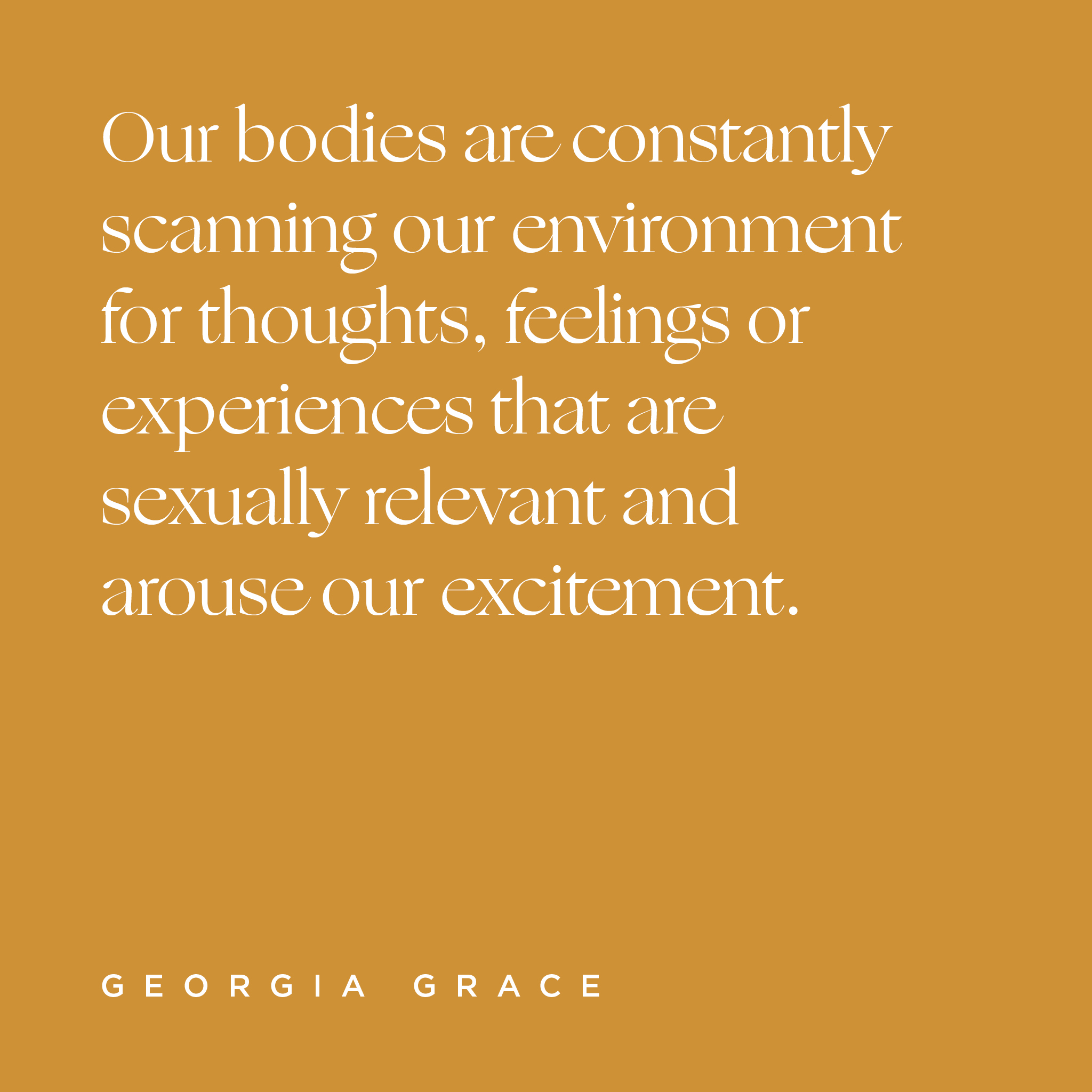
On relieving stress and reigniting desire
Getting a sense of your brakes and accelerators can give you an insight into how to reignite that desire for sex. Look at what brakes you can manage and remove, and look at what accelerators you can bring in. Daily mindful practices are also vital, whether this is 30 seconds of bringing awareness to your breath, awakening sensation in your hands, or having a shower and feeling water pouring over your body. It doesn't need to be 20 minutes of eyes closed humming, although this might work for some people. It's finding ways to be more mindful so that you can start to bring that into your sexual experiences. It’s also useful to speak with whoever you're having sex with about this and see how they can support you. If sex is important for you, consider what you can do outside of a sexual context so, when the time comes, you can be present and feel that sexual desire.
On being there for partners who are stressed
When our partners are experiencing stress, having a conversation at a time that feels accessible, perhaps during a quiet moment, can be effective. If we are starting a dialogue with our partner, it should be blame-free and focus instead on how we can support them and what they're needing. We're also working with social, cultural, and political scripts that have been ingrained into us since we were young, particularly about how we think different relationship structures should work. This can make it more difficult to have those important conversations and why many people seek professional support. It may be useful to go to a therapist, a sex coach, or a sexologist to help manage these areas of conflict or to find a way to have a fulfilling sex life together.
On the connection between Covid-19 and desire
Covid-19 has had a huge impact on people and their relationships, whether that's for people who have had no space to be independent, have been separated by distance or have had challenges — whether it's financial, social, or economic challenges. We've been living through a global pandemic, so it makes sense that relationships have struggled!
At the same time, some people have found that their relationships are stronger. They’ve had more time with their partner, whereas pre-Covid they may have been going in and out at different times, or only seeing each other for meals. The slowness of being able to connect, have fun, play games and work through things means some couples have prioritised their relationships.
On where to start when stress becomes too much
The spiral that comes from stress and anxiety can feel so overwhelming and isolating when you're in it, and we need to remember that everyone goes through this. While stress is normal, you don’t have to live in a state of stress. Practices that can help you feel safe, connected and present in your body and your relationships might include mindfulness, breathwork, saying no to things or speaking with your partner. There are also so many resources out there about how to manage stress, particularly if you're finding it's affecting your desire.
Blogs

Jun 08, 2022
EXPLORING PERIOD CARE IN CULTURES AROUND THE WORLD
Our TOM Talks panelist Sabina McKenna explores how different cultures around the world approach period care.
Read More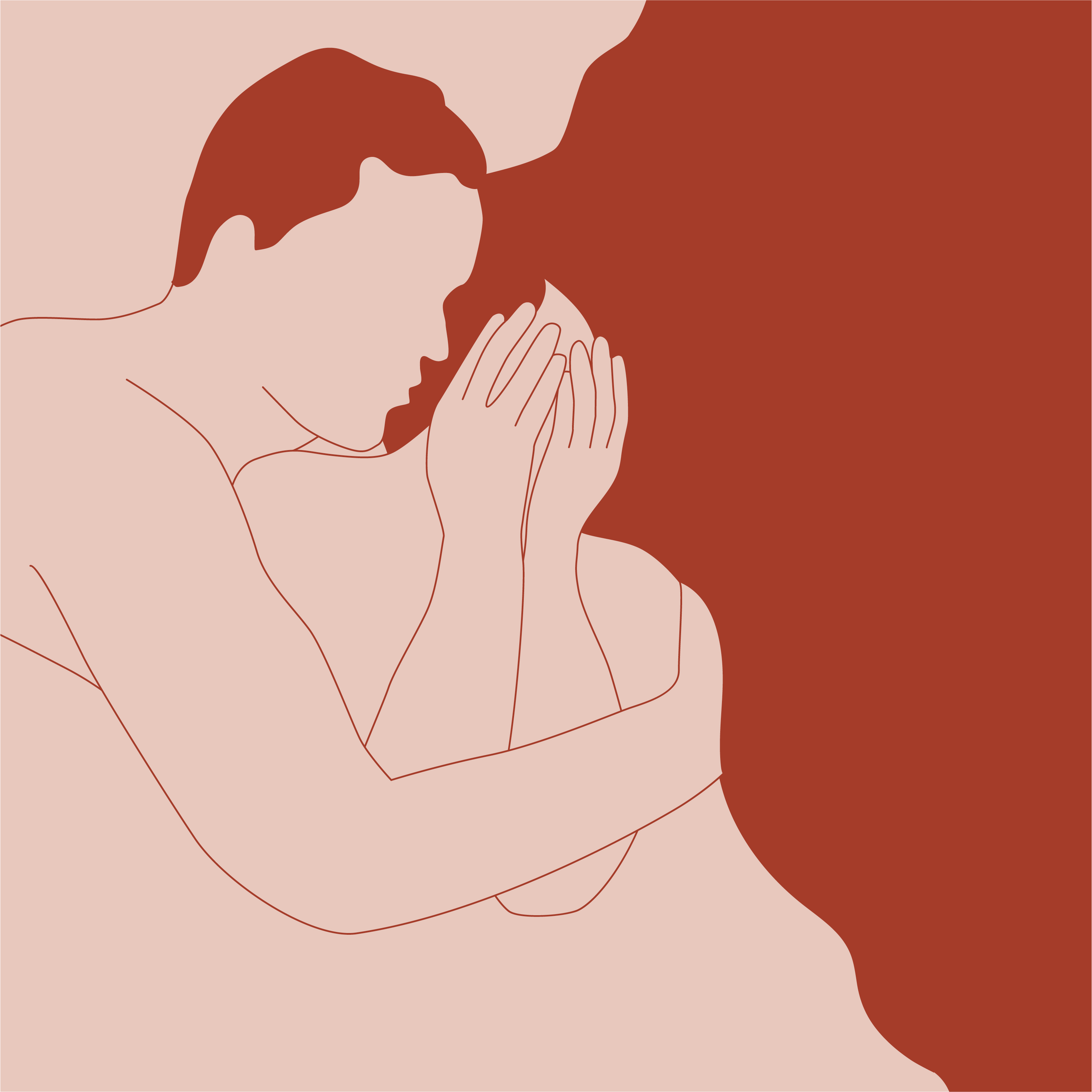
Jun 08, 2022
STOP APOLOGISING FOR HAVING YOUR PERIOD
Our TOM Talks panelist Mel Mason talks about the importance of not apologising for having your period.
Read More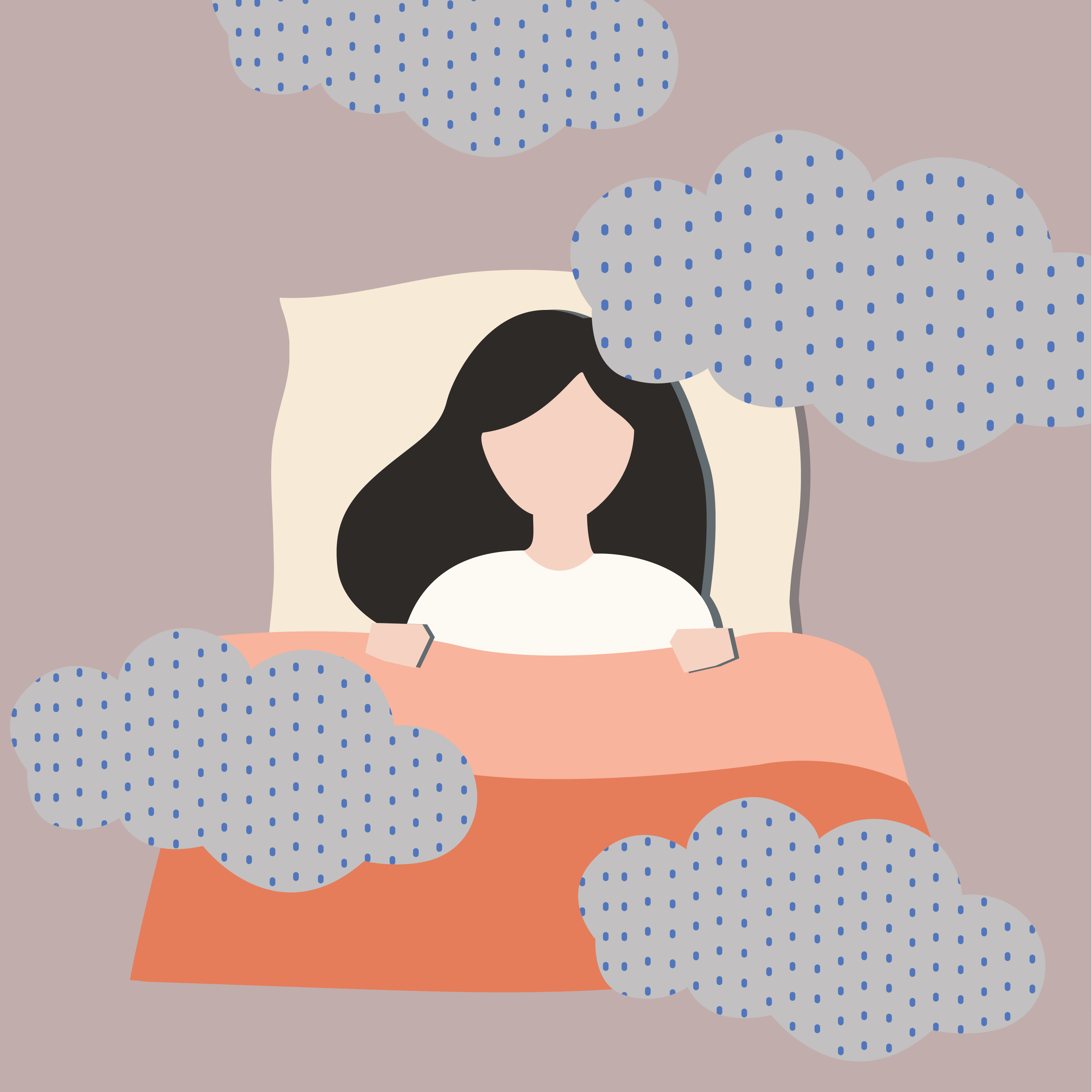
Jun 07, 2022
STRESSED? NOT SLEEPING? TRYING TO CONCEIVE?
TOM Talk's panelist Georgia Hartmann discussed the links between stress, sleep and fertility.
Read More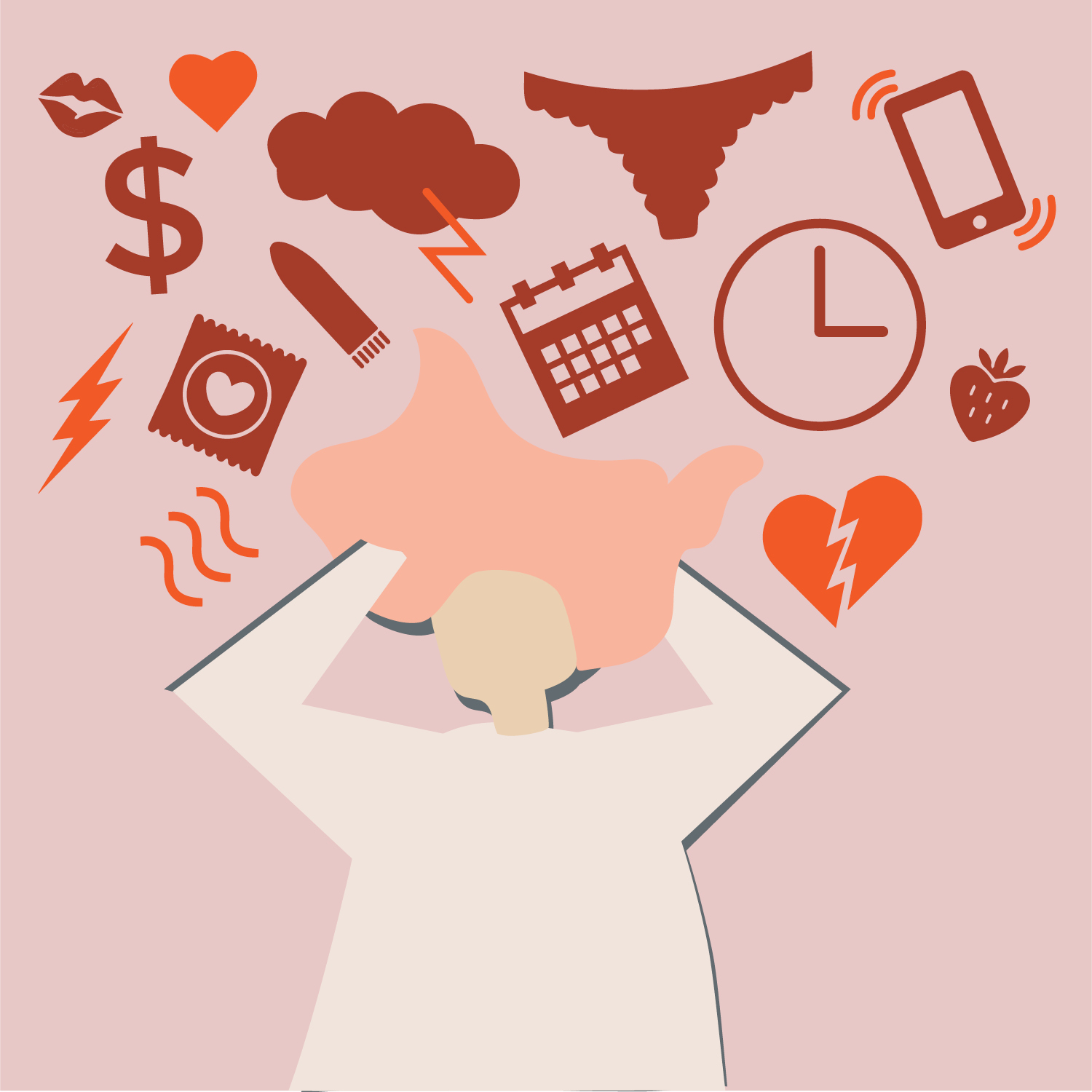
Jun 07, 2022
STRESS AND HOW IT AFFECTS YOUR SEX DRIVE
Certified sex coach Georgia Grace is here to unpack the link between stress and sex.
Read More
